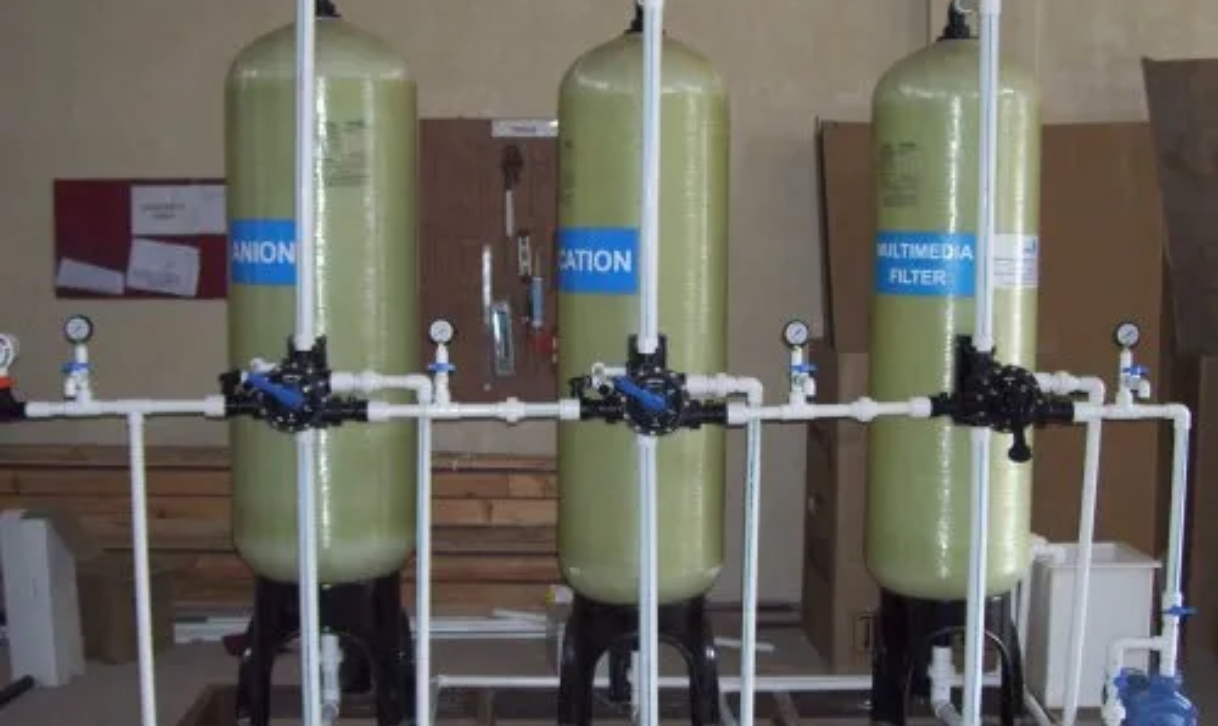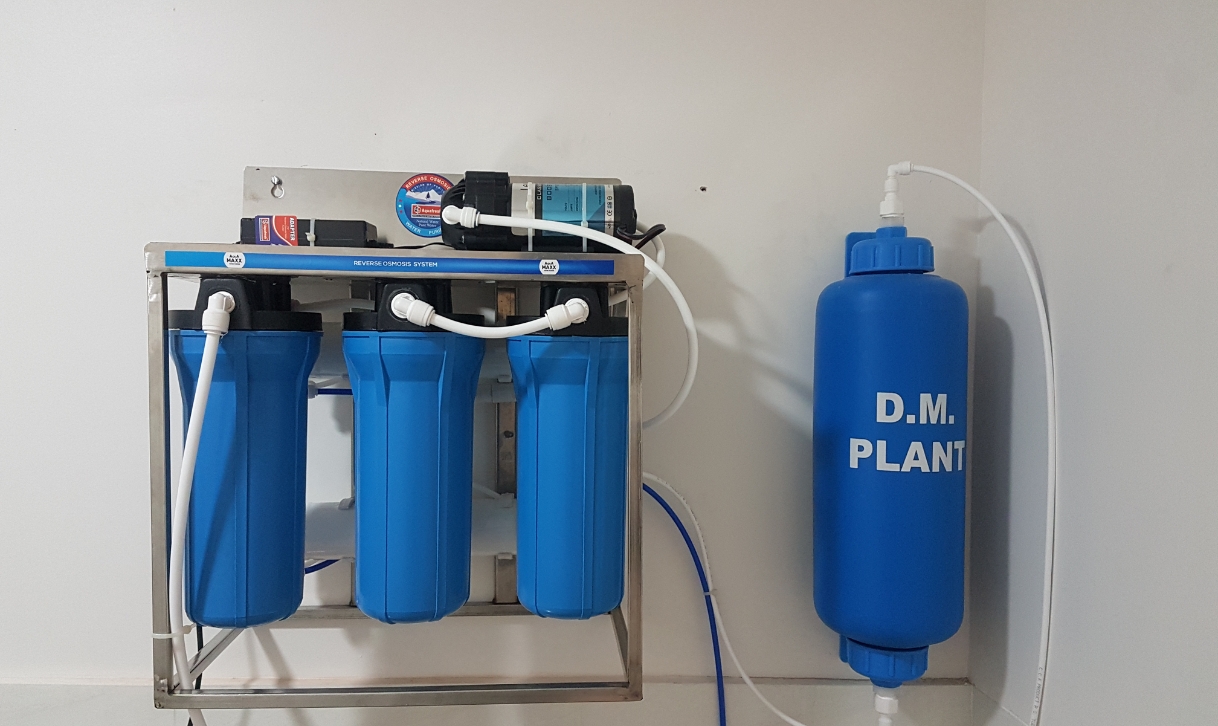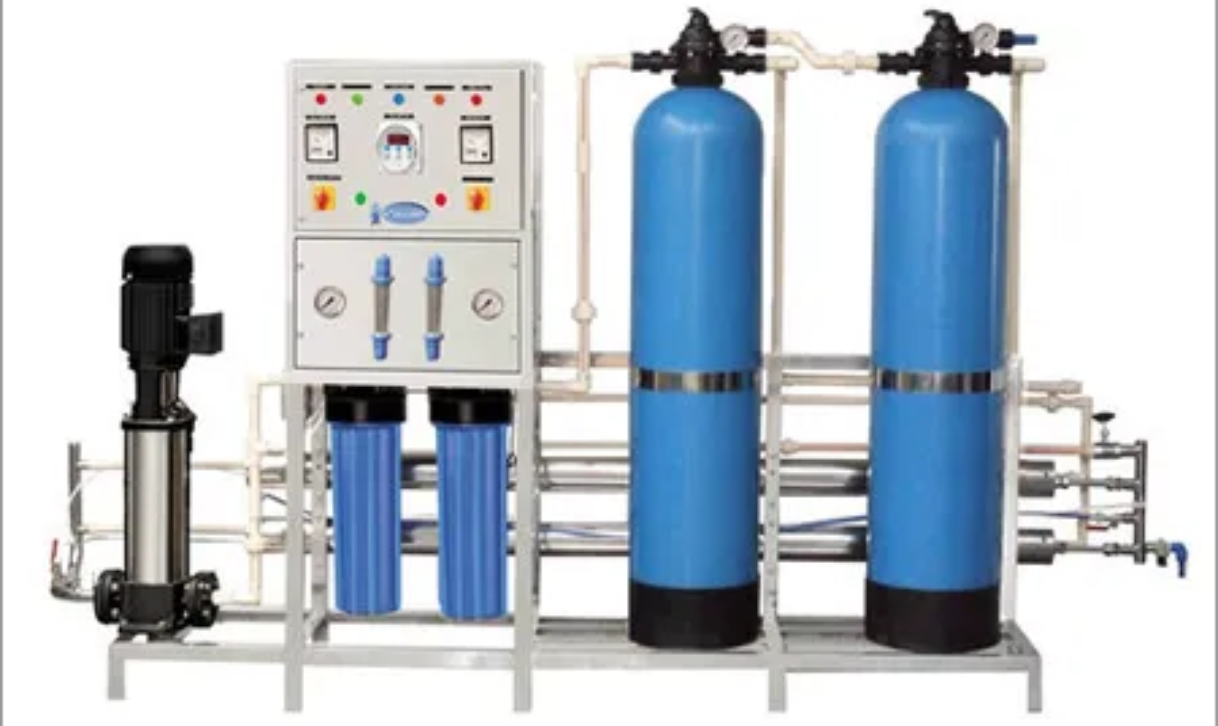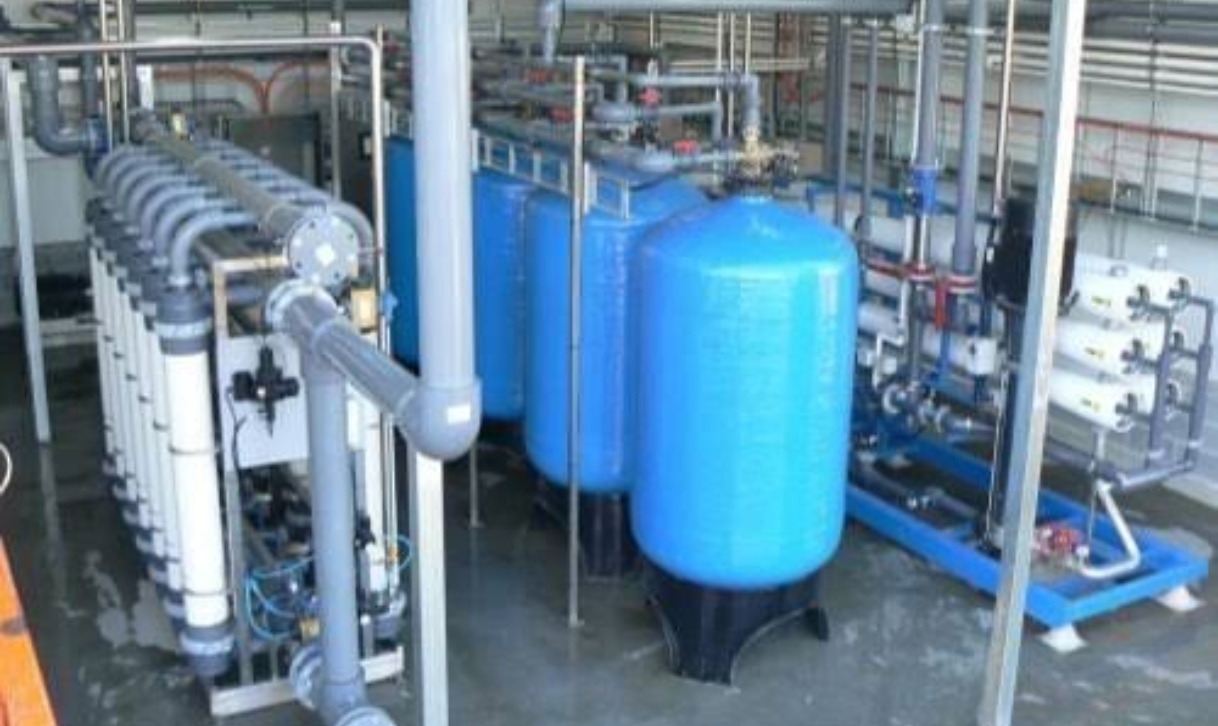
DM Plant
A De-Mineralization Plant is a sophisticated facility designed to purify water by removing dissolved minerals and salts, ensuring that the water is free from impurities and meets high purity standards. This process is crucial for various industrial, commercial, and domestic applications where mineral-free water is required to prevent scaling, corrosion, and other issues associated with hard water. The core technology behind de-mineralization involves two primary methods: ion exchange and reverse osmosis. Ion exchange uses resin beds to swap out undesirable ions, such as calcium and magnesium, with more benign ions, typically sodium. This process effectively softens the water and removes hardness. Reverse osmosis, on the other hand, employs a semi-permeable membrane to filter out dissolved salts and impurities, producing high-purity water.
De-Mineralization Plants are typically equipped with state-of-the-art equipment, including pre-treatment systems to condition the water before it reaches the de-mineralization units. This ensures the longevity and efficiency of the plant. The plants are designed to handle varying capacities and can be tailored to meet specific requirements, from small-scale residential systems to large industrial setups. In addition to providing high-quality water, De-Mineralization Plants also focus on sustainability. Modern plants are designed with energy efficiency in mind and incorporate features to minimize water wastage and environmental impact. By offering reliable and high-performance water treatment solutions, De-Mineralization Plants play a crucial role in supporting various sectors, from manufacturing and pharmaceuticals to power generation and agriculture.



Enhanced Water Quality:De-mineralization removes dissolved salts and minerals, providing ultra-pure water that meets stringent quality standards. This is crucial for applications requiring high-purity water, such as pharmaceuticals, electronics manufacturing, and power generation.
Prevention of Scaling and Corrosion:By removing hardness-causing minerals like calcium and magnesium, de-mineralized water prevents scaling on equipment and pipes. This reduces maintenance costs and extends the lifespan of machinery and infrastructure.
Improved Process Efficiency:In industries such as steam generation and cooling, de-mineralized water helps maintain the efficiency of systems by avoiding mineral buildup that can affect performance and increase energy consumption.
Enhanced Product Quality:For industries like pharmaceuticals and food processing, using de-mineralized water ensures that products are not contaminated with unwanted minerals, leading to higher product quality and consistency.
Cost Savings:Reducing the need for expensive chemical treatments and maintenance associated with hard water can lead to significant cost savings over time. Additionally, using de-mineralized water can lower energy costs by improving system efficiency.

